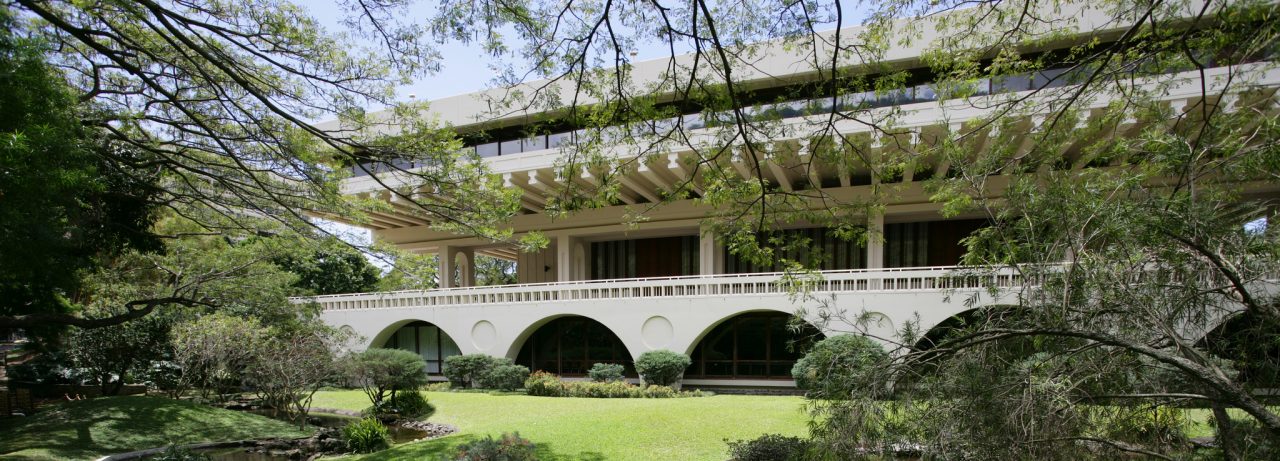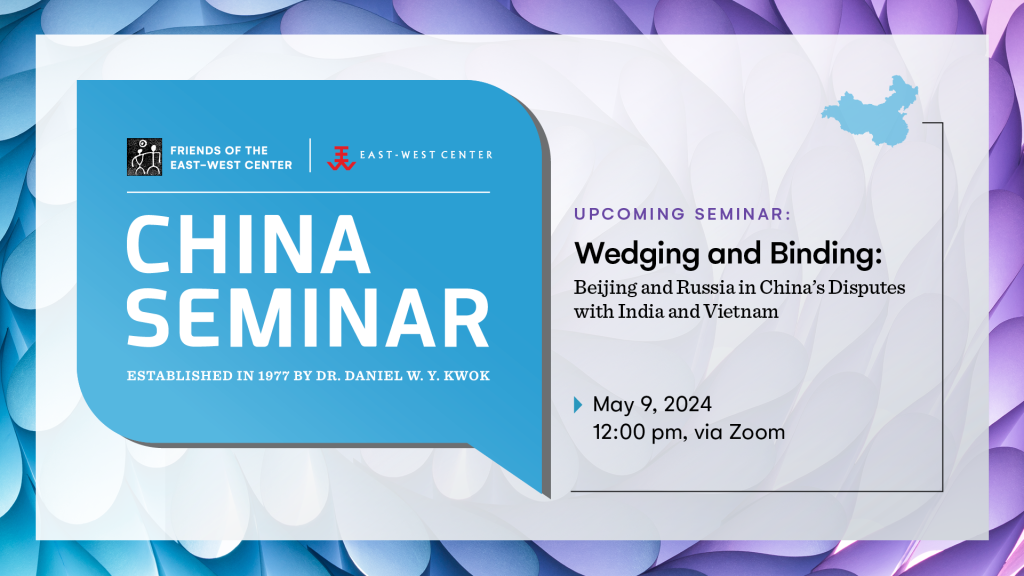Wedging and Binding:
Beijing and Russia in China’s Diputes
with India and Vietnam
featuring
Dr. Shuxian Luo
Assistant Professor, Department of Asian Studies
University of Hawai‘i at Mānoa
Speaker’s summary:
Is Russia becoming a Chinese “vassal” as many Western politicians and pundits claim? Will or can Beijing leverage its growing influence over Moscow to gain stronger Russian backing in China’s territorial disputes with India and Vietnam, both of which have close partnerships with Russia? This study challenges these prevailing views and instead argues that China has adopted a bifurcated approach toward Russia’s role in the context of China’s territorial dispute with India and Vietnam in the post-Cold War era. Driven by a logic of indirect wedging, China has exercised caution in seeking Russia’s support in its dispute with India. In contrast, the logic of binding has made Beijing less reluctant to pressure Moscow regarding the maritime dispute with Vietnam. This study contributes to the existing literature on wedging and binding, and sheds new light on how the US Indo-Pacific strategy could more effectively safeguard America’s interests.
Speaker’s Bio:
Dr. Shuxian Luo is an assistant professor in the Department of Asian Studies at the University of Hawai‘i at Mānoa, and a non-resident China Fellow at the Woodrow Wilson International Center for Scholars. Her primary research interests include Chinese foreign and security policies, maritime security in the Indo-Pacific, and crisis management in US-China relations. Her work has appeared in peer-reviewed journals such as Asian Security, Contemporary Southeast Asia, Journal of Contemporary China, among others, as well as in policy publications such as War on the Rocks and The Diplomat. Dr. Luo has briefed officials and staff at the State Department, US Congress, and UK Cabinet Office. She received her BA in English literature from Peking University and PhD in international relations from Johns Hopkins University School of Advanced International Studies (SAIS).
The China Seminar was founded by Dr. Daniel W.Y. Kwok 46 years ago. Under his guidance, it became a signature program of the Friends of the East-West Center (FEWC) in 2009. The program provides an informal venue for China experts, such as scholars, diplomats, and journalists, to present talks on aspects of China that interest the community and members of the Friends. Topics include politics, economics, social issues, history, culture, food, arts, and many other subjects. Though Dr. Kwok has recently retired from his involvement with the program, the FEWC and the East-West Center remain committed to continuing this important program.



